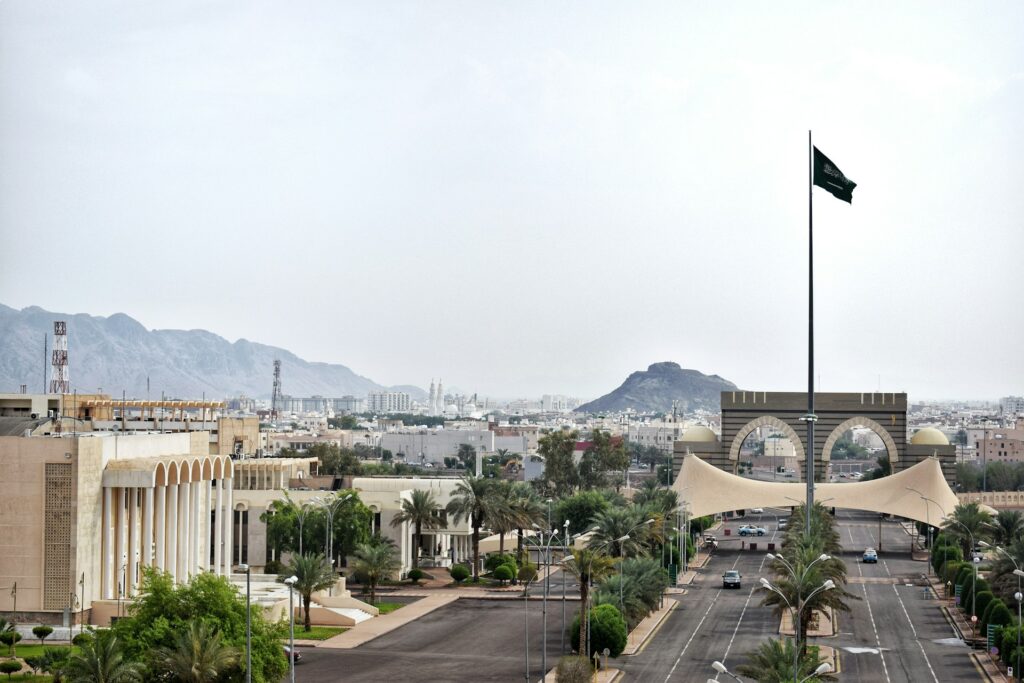Saudi Arabia PPP Projects 2024 has become a global focal point for infrastructure investment, underpinned by an ambitious drive to diversify the economy under Vision 2030. This year, the Kingdom demonstrated exceptional momentum, with nearly 200 public-private partnership (PPP) opportunities in the pipeline across 17 sectors. These include water, healthcare, housing, energy, and education. Within the first half of 2024, major tenders and project launches were rolled out, showcasing Saudi Arabia’s evolving ability to structure complex PPPs with investor-friendly frameworks. At the heart of this growth lies the National Center for Privatization & PPP (NCP), which oversees implementation while ensuring international standards in transparency and efficiency. In just one year, Saudi Arabia advanced from announcing projects to pushing them into procurement and financial close. Moreover, international companies responded with strong interest. For instance, more than 100 companies submitted Expressions of Interest (EOIs) for the Abha Airport which is a clear sign of investor trust. This year’s performance shows Saudi Arabia has moved beyond theory to execution, becoming a regional model for PPP excellence.
Water and Wastewater: Saudi Arabia’s Top Sector for PPP Activity
Saudi Arabia PPP Projects 2024 continues to place the water sector at the forefront of its infrastructure development efforts. With eight major water projects worth over $8 billion announced by the Saudi Water Partnership Company (SWPC), this sector has become a cornerstone for the Kingdom’s transformation. These initiatives span Independent Water Projects (IWPs) and Independent Sewage Treatment Projects (ISTPs) across cities such as Makkah, Jeddah, and Madinah. A key success in 2024 was the Juranah Strategic Water Reservoir PPP, which reached financial close and is set to store 2.5 million cubic meters of potable water. Simultaneously, the Ras Mohaisen desalination plant and Hadda and Arana ISTPs are moving forward with robust international interest. Saudi Arabia aims to develop 10 more strategic water storage projects in the coming five years, demonstrating its long-term commitment. With water demand expected to reach 15 million cubic meters daily by 2030, these PPPs are vital for future sustainability. SWPC’s ability to attract global players like Acciona and Marubeni affirms its growing stature. These successes underline why Saudi Arabia’s water PPP framework is considered a blueprint for the Gulf region.
Health and Education: Social Infrastructure PPPs Gain Momentum in 2024
Saudi Arabia PPP Projects 2024 highlights a remarkable shift towards social infrastructure, particularly healthcare and education. Early this year, the Al Ansar Hospital PPP in Madinah achieved financial close. This 244-bed hospital, awarded under a 20-year contract, stands as the Kingdom’s first fully structured healthcare PPP. It will provide vital services for pilgrims and residents alike, developed by the Tamasuk-Alghanim consortium. In education, the government celebrated the delivery of Wave 2 of the public schools PPP, consisting of 60 schools in Medina and serving over 50,000 students. These schools are now operational under availability-based contracts that ensure quality without requiring direct state operation. Future plans include tenders for five university teaching hospitals and three maternity hospitals. The Ministry of Health has also advanced an imaging diagnostics PPP across seven major hospitals, showing confidence in clinical service privatization. This move toward social PPPs reflects Vision 2030’s priority to enhance service delivery without expanding public budgets. With investor confidence growing, Saudi Arabia has positioned itself as a regional leader in using PPP models to modernize social services effectively.
Transportation and Logistics: Modernizing Access and Mobility via PPPs
Saudi Arabia PPP Projects 2024 places strong emphasis on transportation and logistics as key drivers of economic diversification. This year’s standout initiative, the Abha International Airport redevelopment, attracted over 100 EOIs and is set to boost capacity from 1.5 million to 8 million passengers annually. Structured as a Build-Transfer-Operate PPP, the project is pivotal to Saudi Arabia’s regional air travel strategy. Similarly, the NEOM high-speed rail PPP continues progressing after a €1.4 billion contract awarded to Webuild in 2023. At the logistics frontier, the Zakat and Customs Authority launched a PPP to develop a hybrid renewable energy plant at the Rub’ al Khali border post. Additional tenders for bonded warehouses and K9 centers further enhance logistics security and efficiency. These projects align with broader goals to streamline cargo movement, modernize border infrastructure, and attract foreign investment. Importantly, PPPs are also being piloted for highway rest areas and urban mobility solutions. By diversifying infrastructure delivery methods and engaging private players, Saudi Arabia is building a world-class logistics backbone critical to trade and regional integration.
Housing and Urban Development: PPPs Reshaping Livability and Worker Welfare
Saudi Arabia PPP Projects 2024 demonstrates how public-private models can transform urban spaces and residential welfare. The Tanajib housing PPP, valued at SAR 2.9 billion ($772 million), achieved financial close to develop Saudi Aramco staff accommodations. This Build-Operate-Transfer model includes utilities like a sewage treatment plant, reflecting comprehensive infrastructure design. In NEOM, an additional $8 billion in PPPs was launched to house thousands of workers, making it one of the largest housing PPP programs globally. Urban development efforts have also expanded into telecommunications, parking, and energy-efficient lighting through PPP schemes. Municipal authorities are exploring new concessions for public service assets like smart poles and city transport hubs. With Vision 2030 calling for livable cities and improved housing access, these initiatives offer scalable solutions. Saudi Arabia is not only addressing core infrastructure needs but also investing in quality-of-life upgrades through its PPP agenda. By bundling projects and leveraging long-term concessions, the government enables private sector innovation while retaining strategic oversight. These initiatives illustrate that urban resilience and housing equity can be delivered sustainably through PPP frameworks.
Regulatory Reforms and Challenges in Saudi Arabia’s PPP Environment
Saudi Arabia PPP Projects 2024 reflects the government’s proactive approach to regulatory improvement and risk management. Among the year’s most pivotal changes was the enforcement of a SAR 200 million minimum value for PPP projects, encouraging ministries to consolidate smaller initiatives. This rule aims to optimize transaction efficiency while attracting top-tier investors. To address project delays, the National Center for Privatization boosted its advisory support and launched inter-agency training programs. Inflation and higher global interest rates have marginally increased financing costs, prompting Saudi authorities to mobilize the National Infrastructure Fund for co-lending options. Operational readiness also emerged as a concern. In response, ministries began forming contract management units to oversee compliance and performance monitoring. These adaptations reflect a growing maturity in Saudi Arabia’s PPP governance ecosystem. By emphasizing accountability, financial sustainability, and knowledge sharing, the Kingdom is building investor trust. The reforms position the country as a stable, responsive environment for long-term infrastructure investments. As PPP complexity increases, such capacity-building initiatives will be crucial in supporting scalable, replicable project delivery across sectors.
Saudi PPP Pipeline Outlook: Sectoral Shifts and Global Investor Confidence
Saudi Arabia PPP Projects 2024 reveals an evolving pipeline that now includes unconventional sectors such as tourism, sports, and media infrastructure. In a notable example, the Saudi Broadcasting Authority launched a PPP to modernize 143 television and radio towers. The Ministry of Sports is similarly evaluating partnerships to outsource stadium operations and event logistics. While water and energy projects still dominate in terms of investment volume, social and municipal PPPs are gaining traction. According to government figures, over 60 PPP contracts have either been signed or reached final stages in 2024. Cumulatively, this accounts for $5.5 billion in new capital mobilized. This strategic diversification ensures that public-private models are embedded across service delivery chains. Saudi Arabia’s robust legal framework, paired with consistent institutional coordination, has helped secure participation from over 30 international bidders. These include giants like SNC-Lavalin, Marubeni, and Acciona, reinforcing Saudi Arabia’s image as a PPP-friendly market. As more projects move from planning to execution, the country is likely to serve as a regional benchmark. Forward-looking policies and a well-managed pipeline will ensure that the PPP model remains central to national development planning.
Conclusion: Saudi Arabia Emerges as a Regional PPP Benchmark
Saudi Arabia PPP Projects 2024 confirms that the Kingdom has evolved from early-stage planning to execution and performance. This year’s rollout of water, health, education, logistics, and housing PPPs illustrates comprehensive sectoral engagement. Supported by Vision 2030, the country is not only achieving diversification but also embedding private sector efficiency into core public functions. More than 200 projects are at various stages, with many reaching tender or financial close. Regulatory clarity, flexible risk allocation, and capacity-building efforts ensure that Saudi Arabia remains attractive to global investors. Challenges like inflation and implementation delays are being met with responsive policymaking. Furthermore, the institutionalization of contract oversight reflects long-term planning. As the PPP portfolio diversifies into media, tourism, and sports, the country is redefining public service delivery. Saudi Arabia’s PPP model, with its structured procurement and reliable payment mechanisms, is now recognized across the Middle East and beyond. Investors, developers, and government partners worldwide can look to the Kingdom as a compelling, innovative, and stable market for PPP collaboration.




